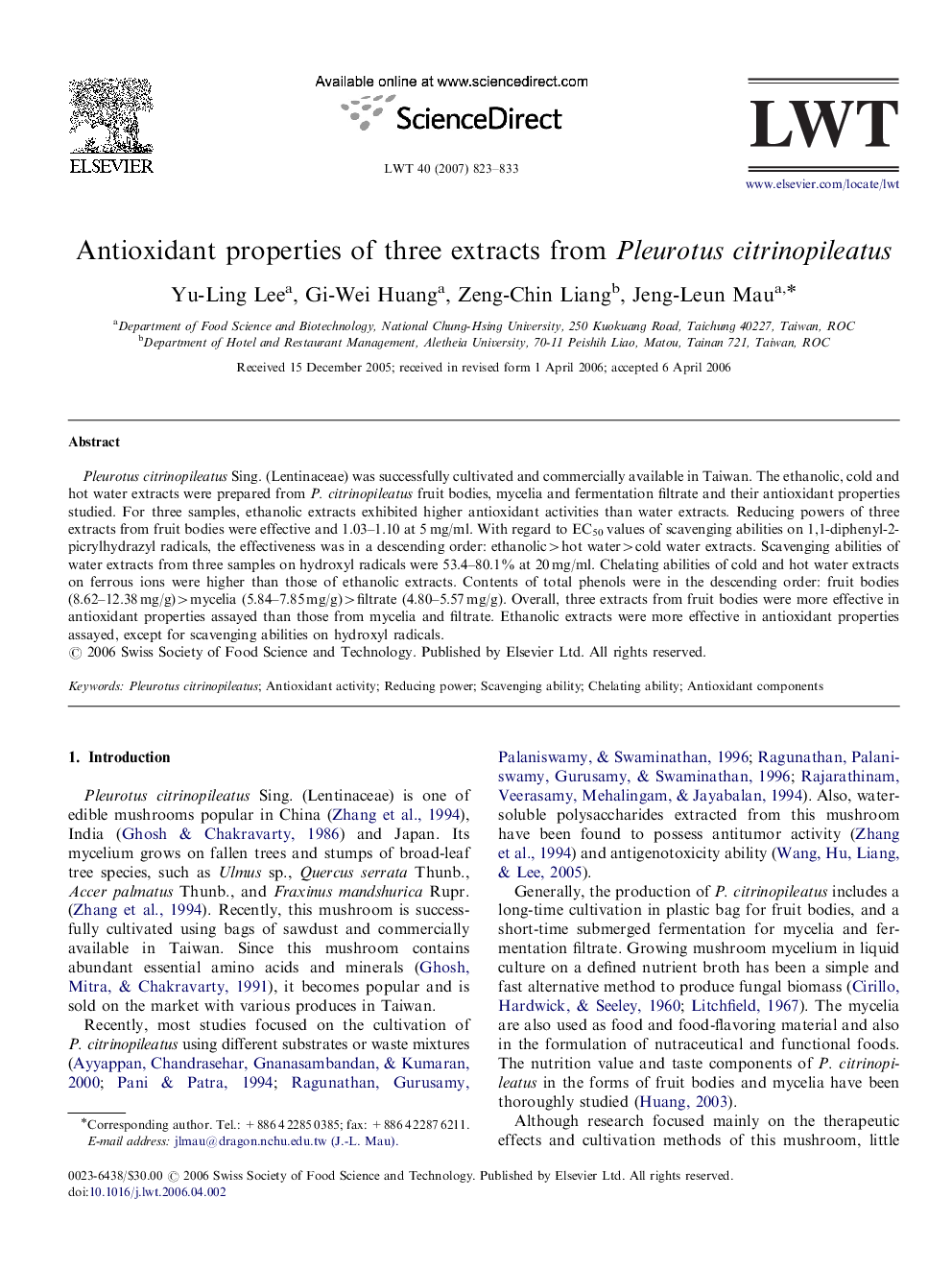| Article ID | Journal | Published Year | Pages | File Type |
|---|---|---|---|---|
| 4565452 | LWT - Food Science and Technology | 2007 | 11 Pages |
Pleurotus citrinopileatus Sing. (Lentinaceae) was successfully cultivated and commercially available in Taiwan. The ethanolic, cold and hot water extracts were prepared from P. citrinopileatus fruit bodies, mycelia and fermentation filtrate and their antioxidant properties studied. For three samples, ethanolic extracts exhibited higher antioxidant activities than water extracts. Reducing powers of three extracts from fruit bodies were effective and 1.03–1.10 at 5 mg/ml. With regard to EC50 values of scavenging abilities on 1,1-diphenyl-2-picrylhydrazyl radicals, the effectiveness was in a descending order: ethanolic>hot water>cold water extracts. Scavenging abilities of water extracts from three samples on hydroxyl radicals were 53.4–80.1% at 20 mg/ml. Chelating abilities of cold and hot water extracts on ferrous ions were higher than those of ethanolic extracts. Contents of total phenols were in the descending order: fruit bodies (8.62–12.38 mg/g)>mycelia (5.84–7.85 mg/g)>filtrate (4.80–5.57 mg/g). Overall, three extracts from fruit bodies were more effective in antioxidant properties assayed than those from mycelia and filtrate. Ethanolic extracts were more effective in antioxidant properties assayed, except for scavenging abilities on hydroxyl radicals.
